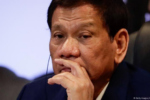Gov’t urged to check plight of OFWs in Russia

MANILA – A senatorial candidate on Thursday urged the government to look into the condition of overseas Filipino workers (OFW) in Russia amid the ongoing tensions in Ukraine.
In a statement, Partido Reporma senatorial bet Guillermo Eleazar said the government must establish a line of communication with Filipinos in the host country, which has been hit by economic sanctions from various countries.
“Our government should set up communication lines with Filipinos there so that we may have an idea of their situation and we could extend help to them if needed,” Eleazar said.
He also urged the government to check if the Filipinos in Russia want to be repatriated, noting that their safety and welfare must always be prioritized.
The United States, United Kingdom, European Union, Australia, and some Asian countries condemned Russia over its invasion of Ukraine and slapped economic sanctions against it, including curbs on its oil trade which contributed to the hike in fuel prices.
The Department of Foreign Affairs has raised Alert Level 4 in Ukraine, which means a mandatory evacuation of all Filipinos and a ban on the deployment of Filipino workers in the conflict-torn European country.
Aid to transport sector
Meanwhile, to allow the transport sector to bounce back from the economic losses sustained during the lockdowns due to the coronavirus pandemic and skyrocketing oil prices, Eleazar said the implementation of the Public Utility Vehicle (PUV) Modernization Program must be delayed.
He added that pushing for the implementation of the program which seeks to phase out jeepneys and buses that are plying the streets for 15 years and more will only contribute to the burden of drivers and operators who have already been battered by the pandemic and the series of oil price hikes.
The PUV Modernization Program was launched by the Department of Transportation in 2017 to transform the country’s public transportation system and make it more efficient and environment-friendly.
It targets to replace all PUVs such as traditional jeepneys and buses with modern vans or mini-buses. Its total implementation is scheduled to start in April 2022.
The transport sector was one of the most affected groups when the government shut down public transportation in 2020 during the onset of the Covid-19 pandemic. (PNA)






